Complete Solutions to Exercise 8a of chapter QUADRILATERALS of Class 9 book with complete answers and questions
| Class 9 | MATHS |
| Chapter | QUADRILATERALS |
| NAGEEN PRAKASHAN | Exercise 8a |
| Number Of Questions | 29 |
| Academic Year | 2023-24 |
The angles of a quadrilateral are `89^(@) and 113^(@)` If the other two angles are equal, find the equal angles.
View SolutionIn quadrilateral `ABCD`, `angleA=100^(@),angleB=70^(@)andangleC:angleD=8:11,"then find "angleD.`
View SolutionIn quadrilateral ABCD, side AB is parallel to side `DC. IFangleA:angleD=1:2andangleC:angleB=4:5.`
(i) Calculate wach angle of the quadrilateral.
(ii) Assign special name to quadrilateral ABCD.
View SolutionFind the values of x and y from adjoining parallelogram.
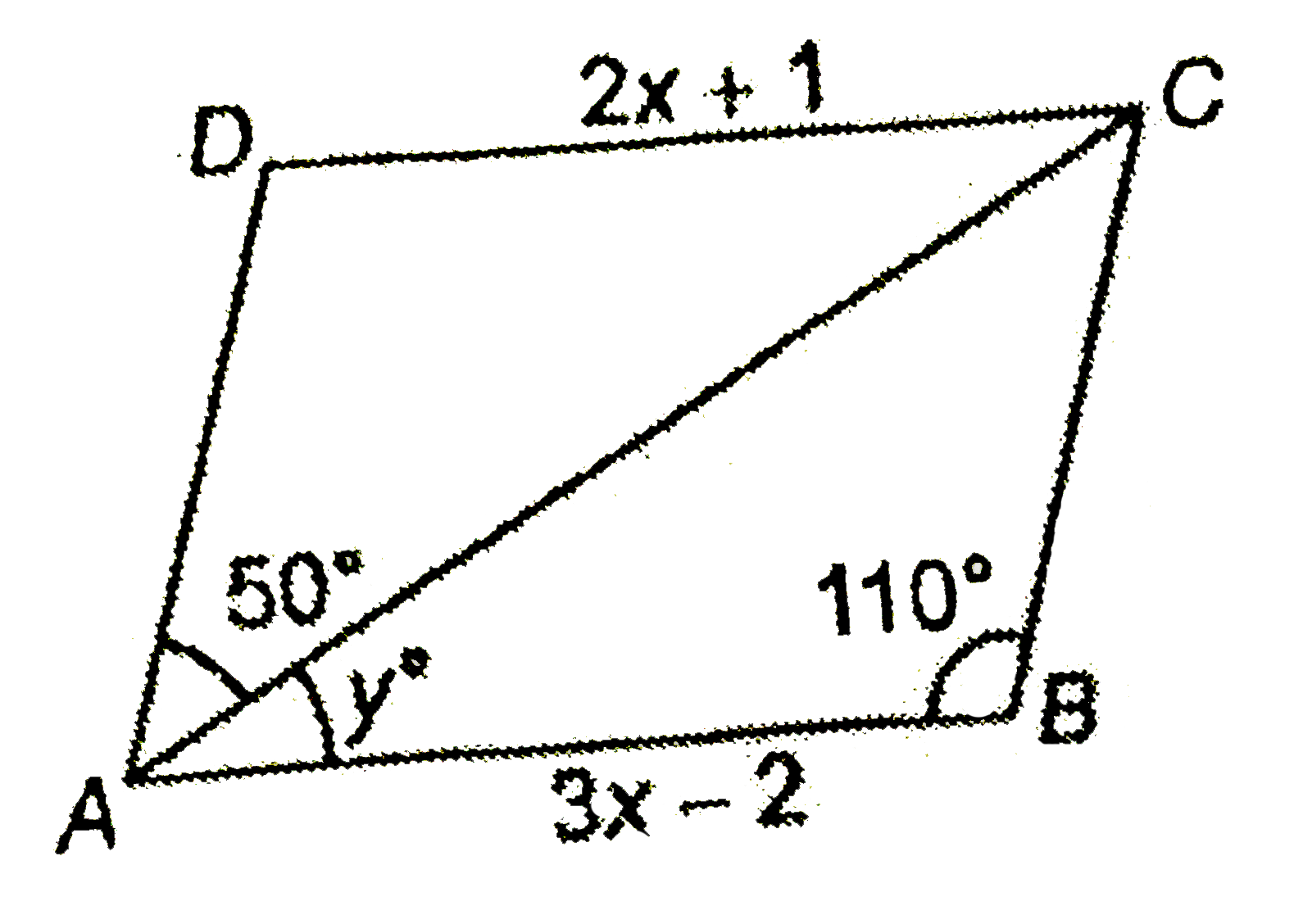
View SolutionFind x,y and z in each of the following figure:

View SolutionIn the given figure, find `(i) angleXOD(ii) angleXOC`
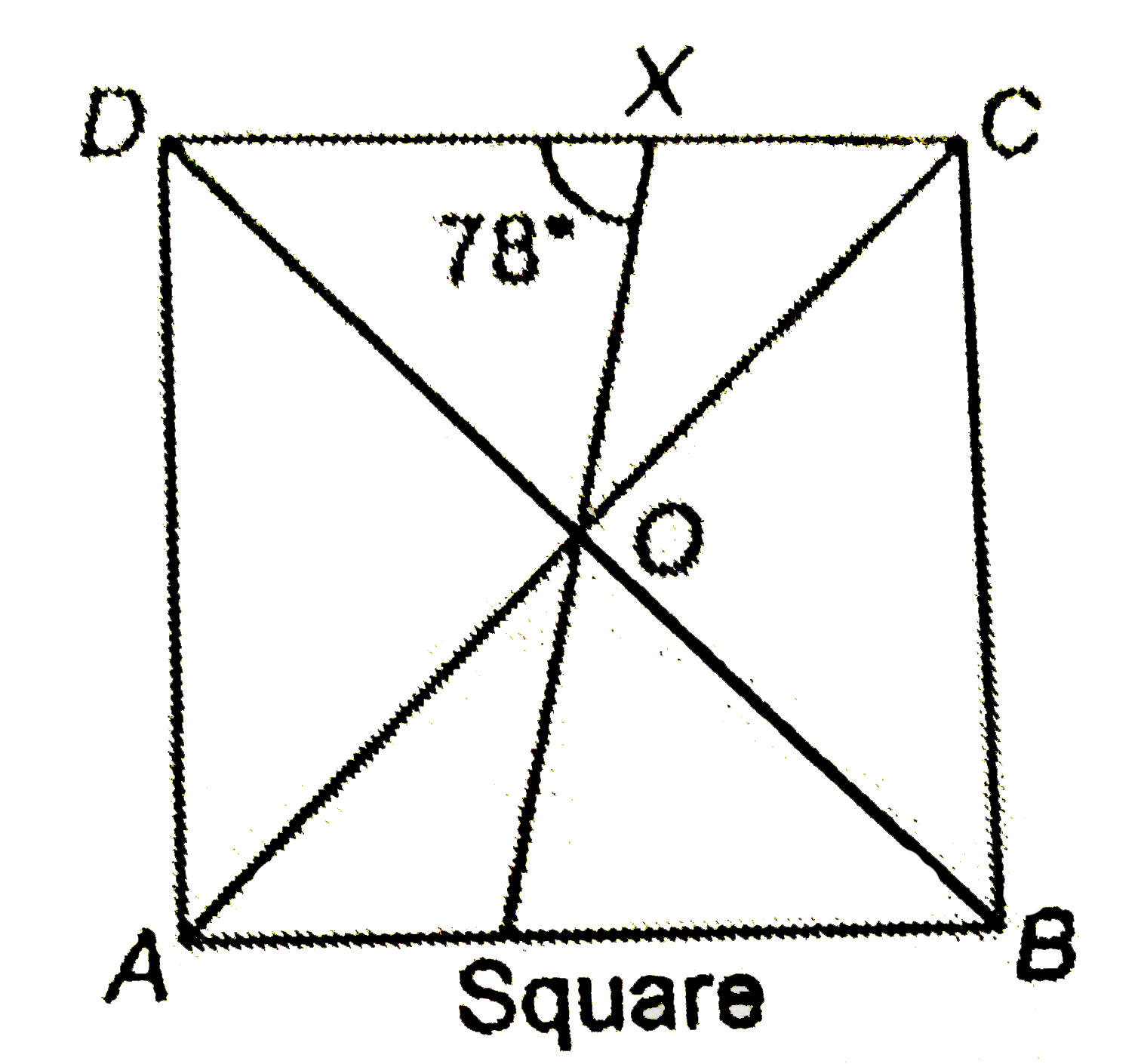
View SolutionIn the given figure, ABCD is a square and `anglePQR=90^(@).If PB=QC=DR,` prove that.
(i) QB = RC
(ii) PQ = QR
(iii) `angleQPR=45^(@)`
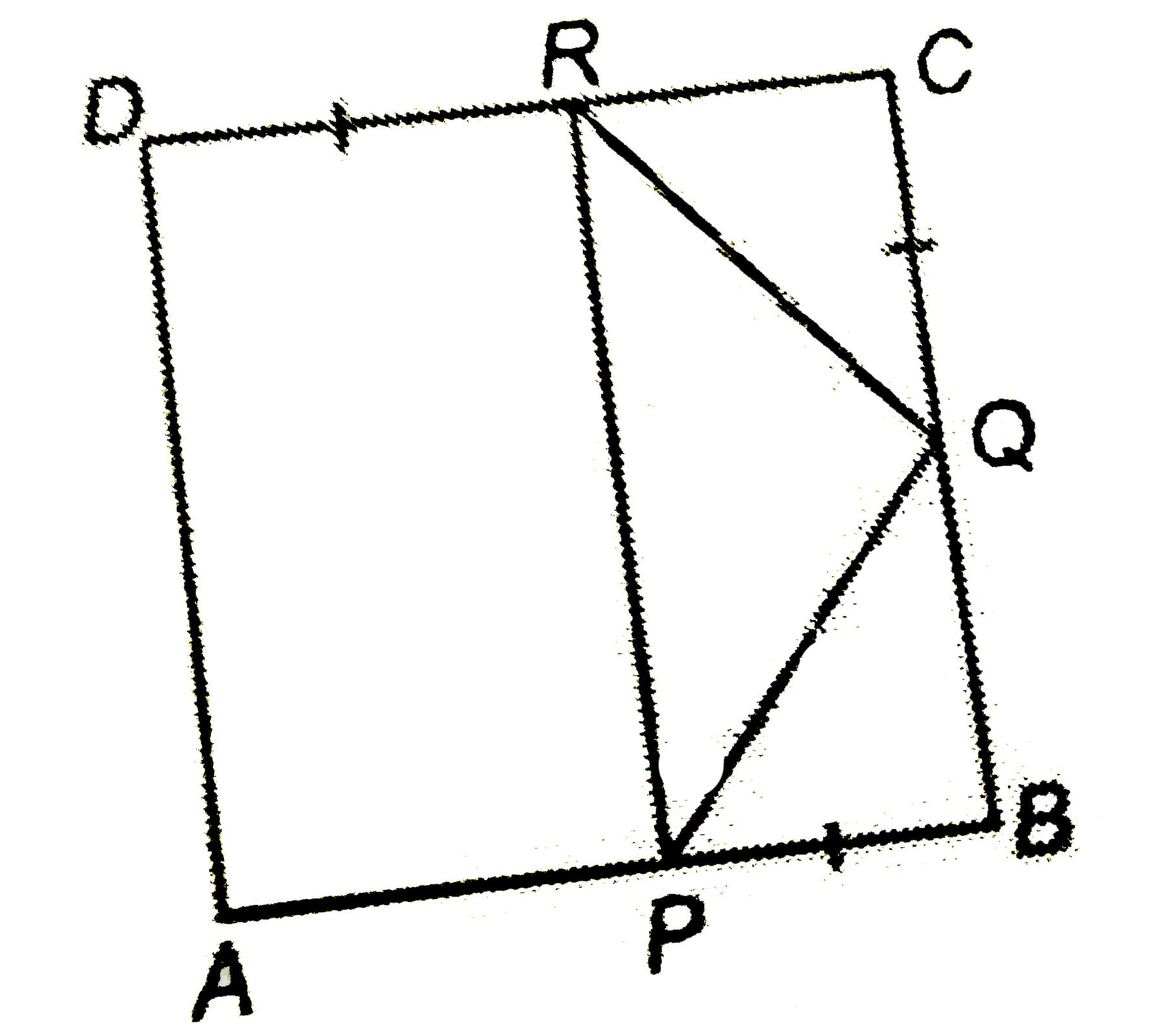
View SolutionIn a square ABCD, diagonals meet at O. P is point on BC such that OB = BP.Show that (i) `anglePOC=(22(1)/(2))^(@)`
(ii) `angleBDC=2anglePOC`
(iii) `angleBOP=3angleCOP`
View SolutionThe give figure shows a square ABCD and an equilayeral teiangle APB. Calculate :
`{:((1)angleAOB,(ii)angleBPC),((iii)anglePCD,(iv)"reflex"angleAPC):}`
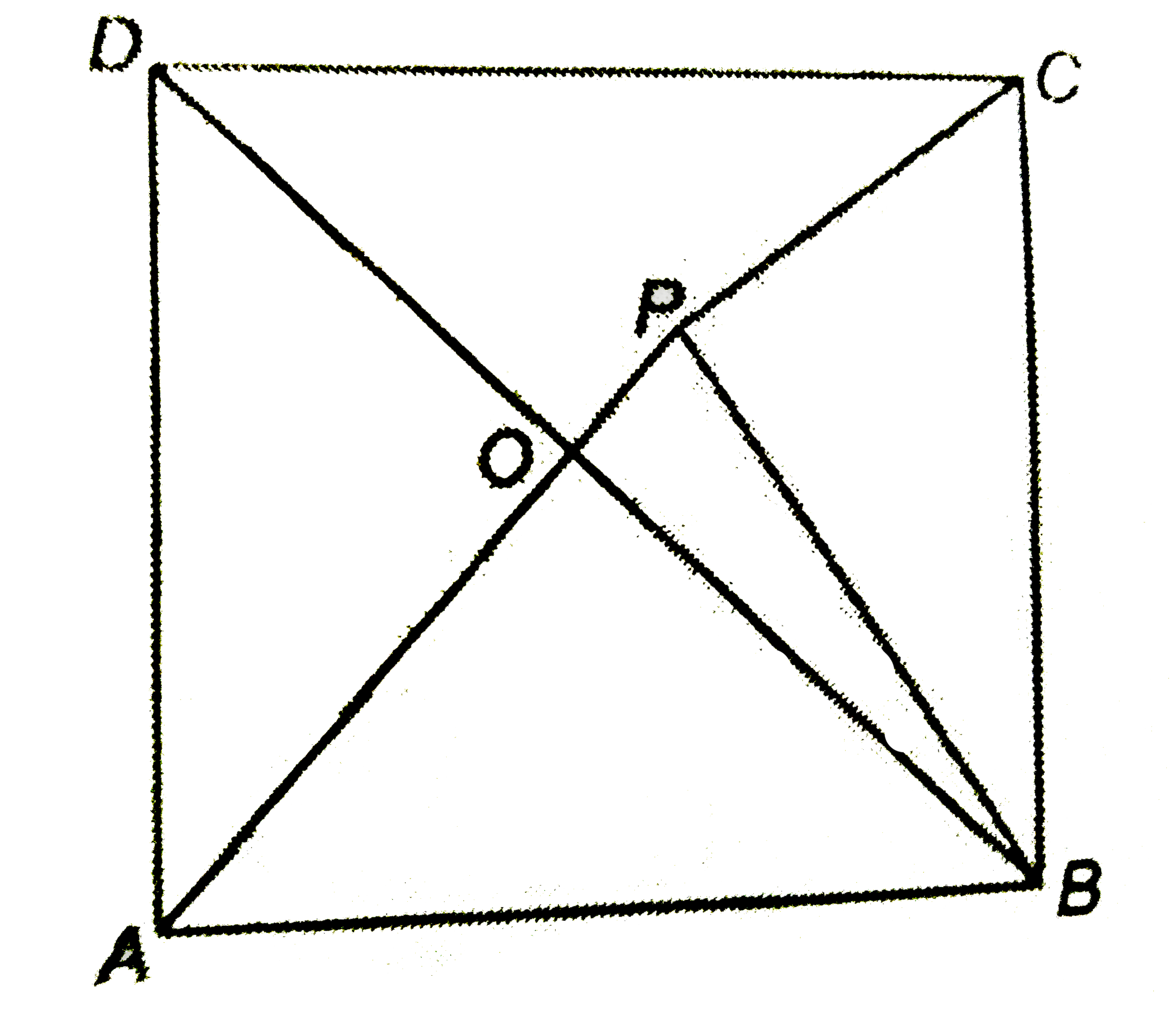
View SolutionIn the given figure, ABCD is a rohombus with `A=67^(@).` If DEC is an equilateral triangle, calculate
(i) `angleCBE`
(ii) `angleDBE`
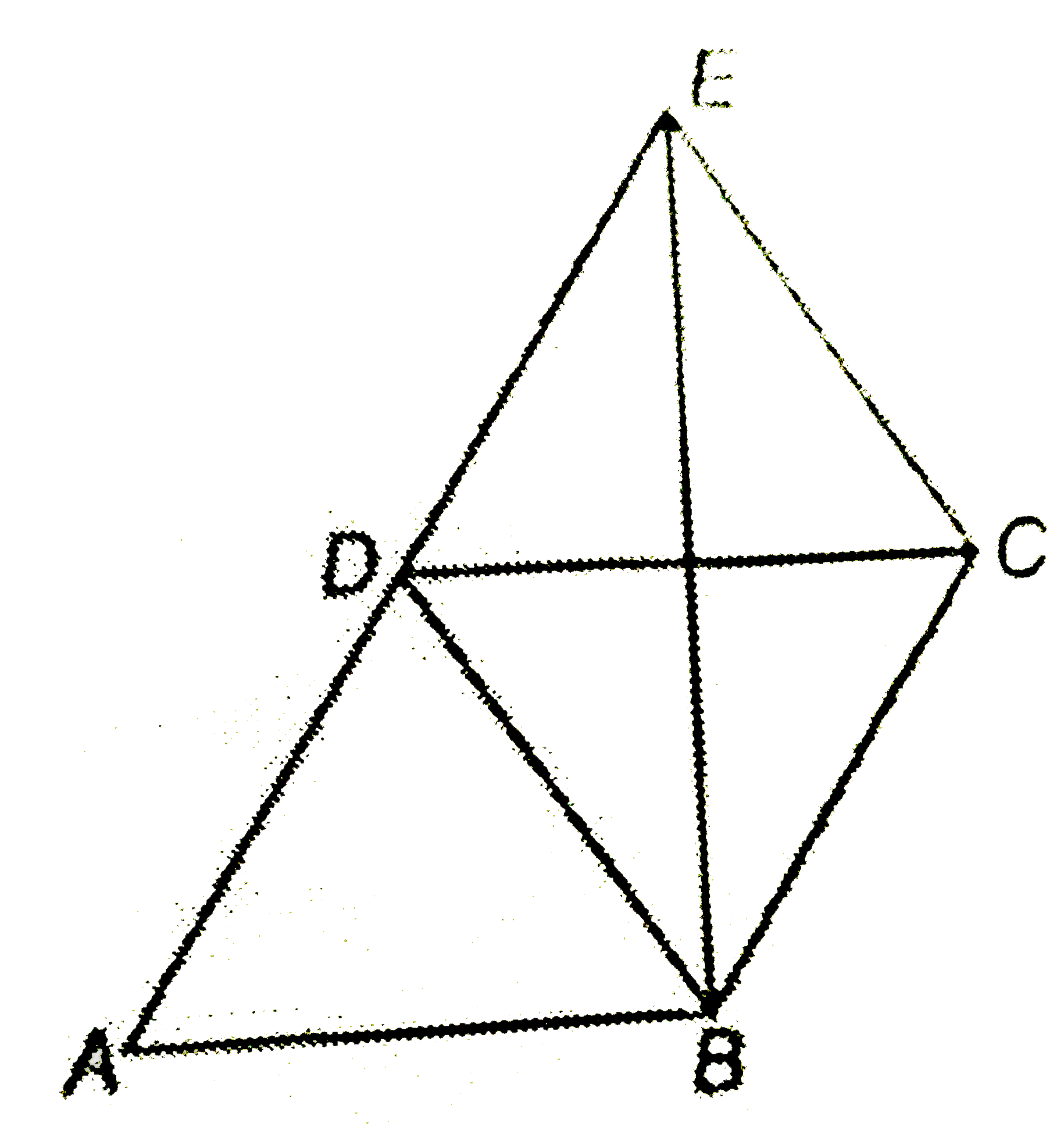
View SolutionIf the adjacent angles of a parallelogram are in the ratio `1/3:1/2.` Find all the angles of parallelogram.
View SolutionProve that the sum of two consecutive angles of a parallelogram is `180^(@).`
View SolutionOne angle of a parallelogram is `60^(@).` Find its remaining angles.
View SolutionOne diagonal of a parallelogram biscets its one of the angles. Show tht it will also bisec the opposite angle.
View SolutionThe opposite angles of a parallelogram are `(3x-2)^(@)and(150-x)^(@).` Find each angle of the parallelogram.
View SolutionIn the adjoining figure, ABCD is a parallelogram. If `angleABC=125^(@),`
`angleACD=28^(@),"then fine"angleDAC.`
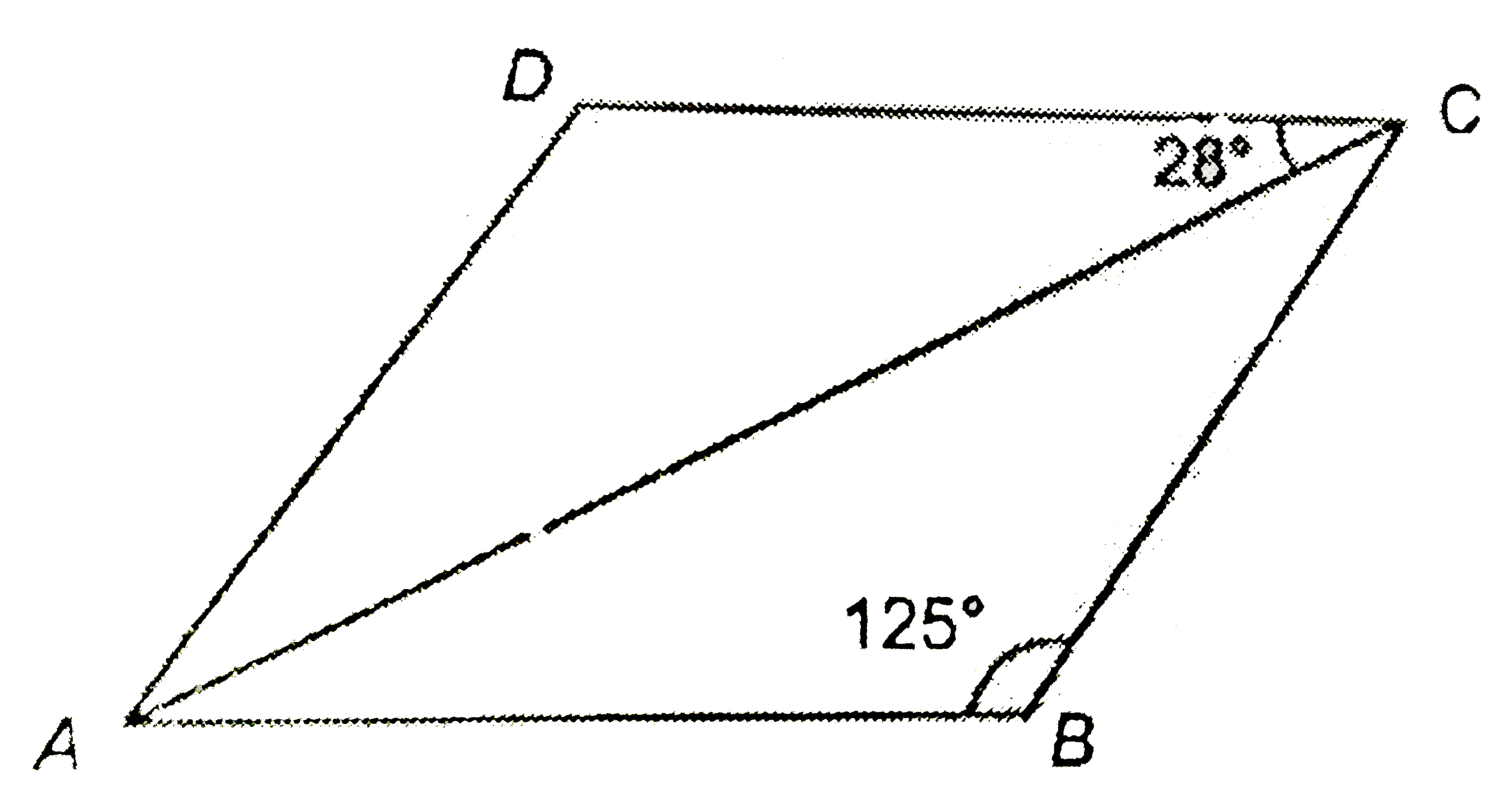
View SolutionIn a parallelogram, one angleis twice of its consecutiv angle. Find all the angles of the parallelogram.
View SolutionIn a parallelogram ABCD, AX and CY are the bisectors of `angleAandangleC` respectively. Prove that `AX"||"CY.`
View SolutionIn a parallelogram PQRS, PX and QY are the perpendiculars drawn from P and Q respectively so SR and SR produced. Prove that PX= QY.
View SolutionIn a parallelogram ABCD, the bisector of `angleA` bisects the line Bcat point X. Prove that AD = 2AB.
View SolutionIn a parallelogram ABCD, `angleBCD=60^(@)` If the bisectors AP and BP of `angleA and angleB` respectively, meet the side CD at point P, then prove that CP = PD.
View SolutionIn the adjoining figure, `DeltaPQR` is formed by the sides PQ, QR and RP which are drawn parallel to sides AB,BC and CA respectively of `DeltaABC.` Prove that
`" "PQ+QR+RP+2(AB+BC+CA).`
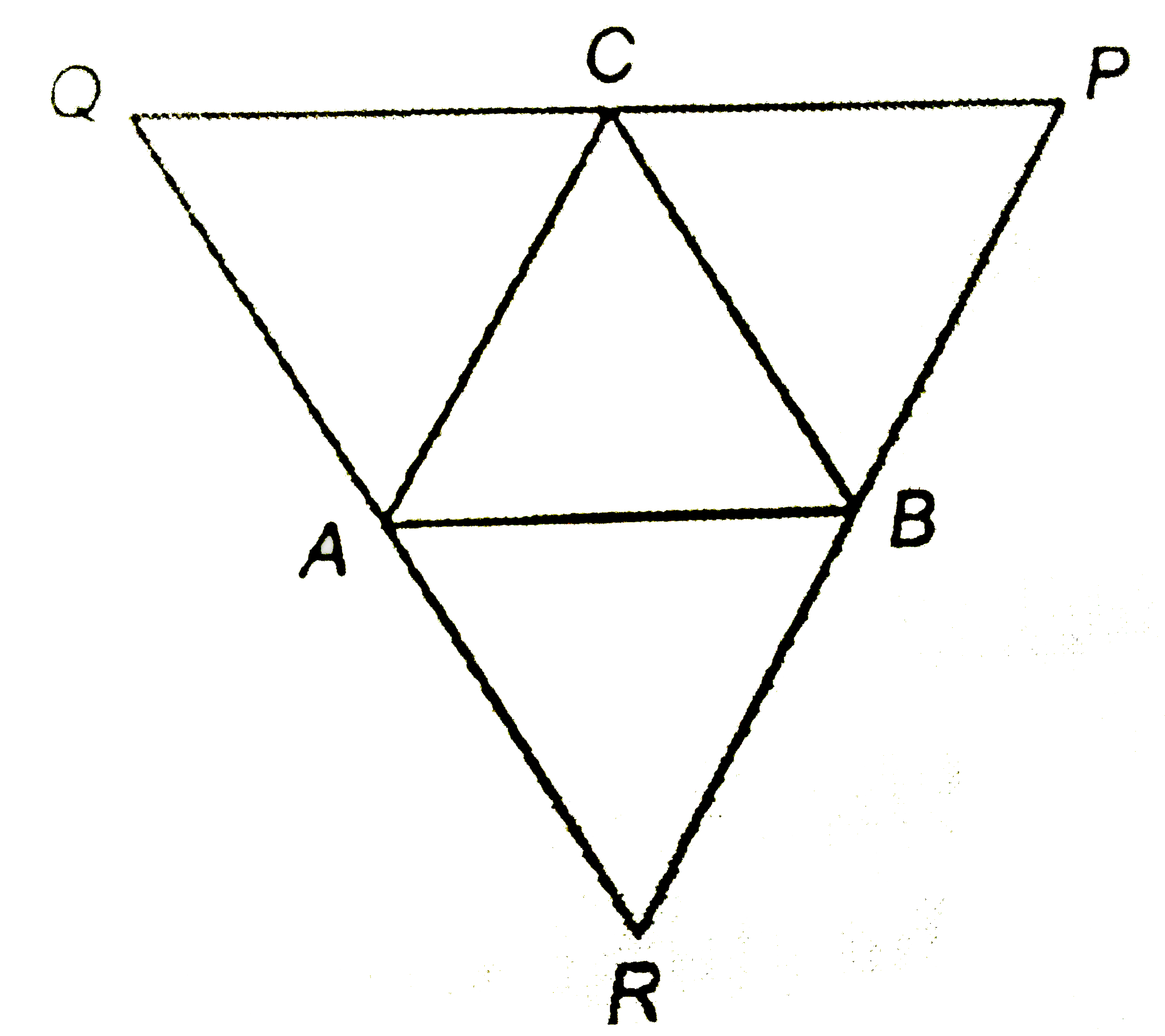
View SolutionX and Y are the mid-points of the opposite sides AB and DC of a parallelogram ABCD. Then `squareAXCY` is a ?
View SolutionTwo points X and Y lie on the diagonal BD of a parallelogram ABCD such that DX = BT. Prove that `squareAXCY` is a parallelogram.
View SolutionIn the adjoining figure, `DeltaABC` is an isosceles triangle in which AB = AC. Side CP is parallel to AB and AP is the bisector of exterior angle CAD of `Delta` ABC. Prove that `anglePAC=angleBCAand squareABCP` is a parallelogram.
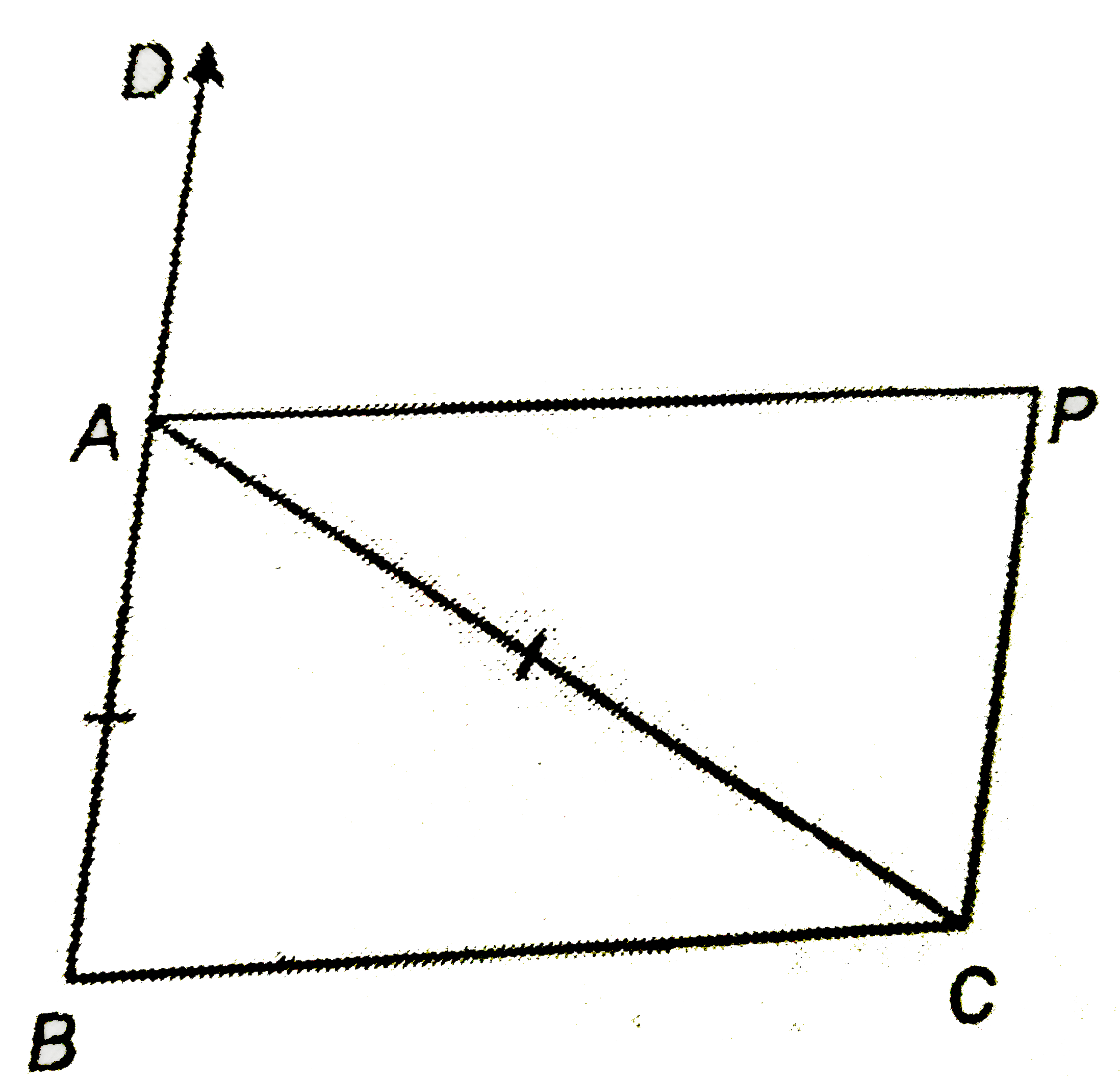
View SolutionAB and CD are two parallel lines and a transversal 'l' intersects these lines at X and Y respectively Prove that the bisectors of interior angles from a parallelogram whose each angle is `90^(@).`
View SolutionIn the adjoining figure `squareABCD` is a parallelogeam. Points X and Y lie on the sides AD and BC respectively and `AX=1/4ADandCY=1/4BC.` Show that `squareXBYD` is a parallelogram.
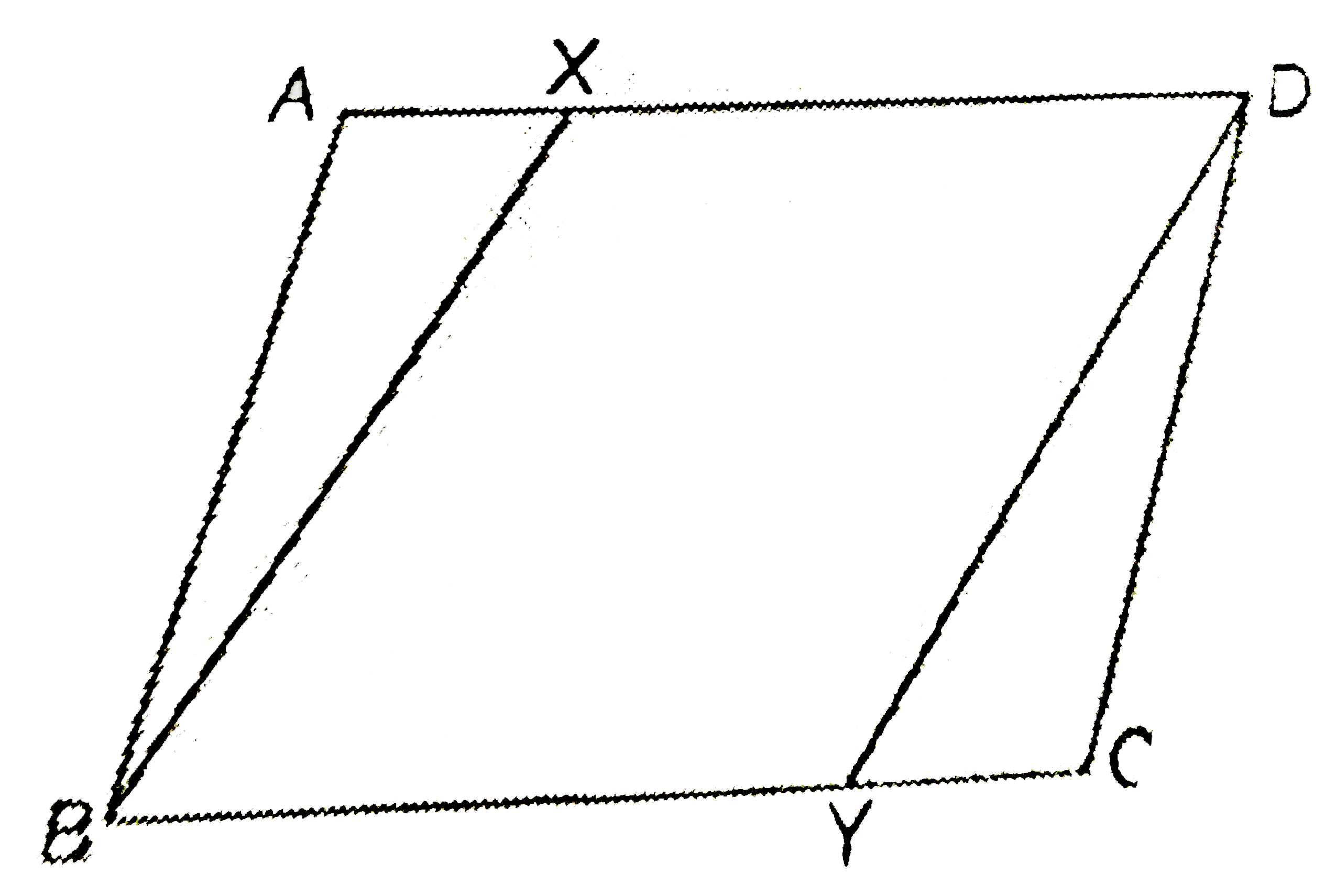
View SolutionIn the adjoining figure, ABCDEF is a regular hexagon. Prove that `squareABDE, square ACDF and squareAGDH` are parallelograms.
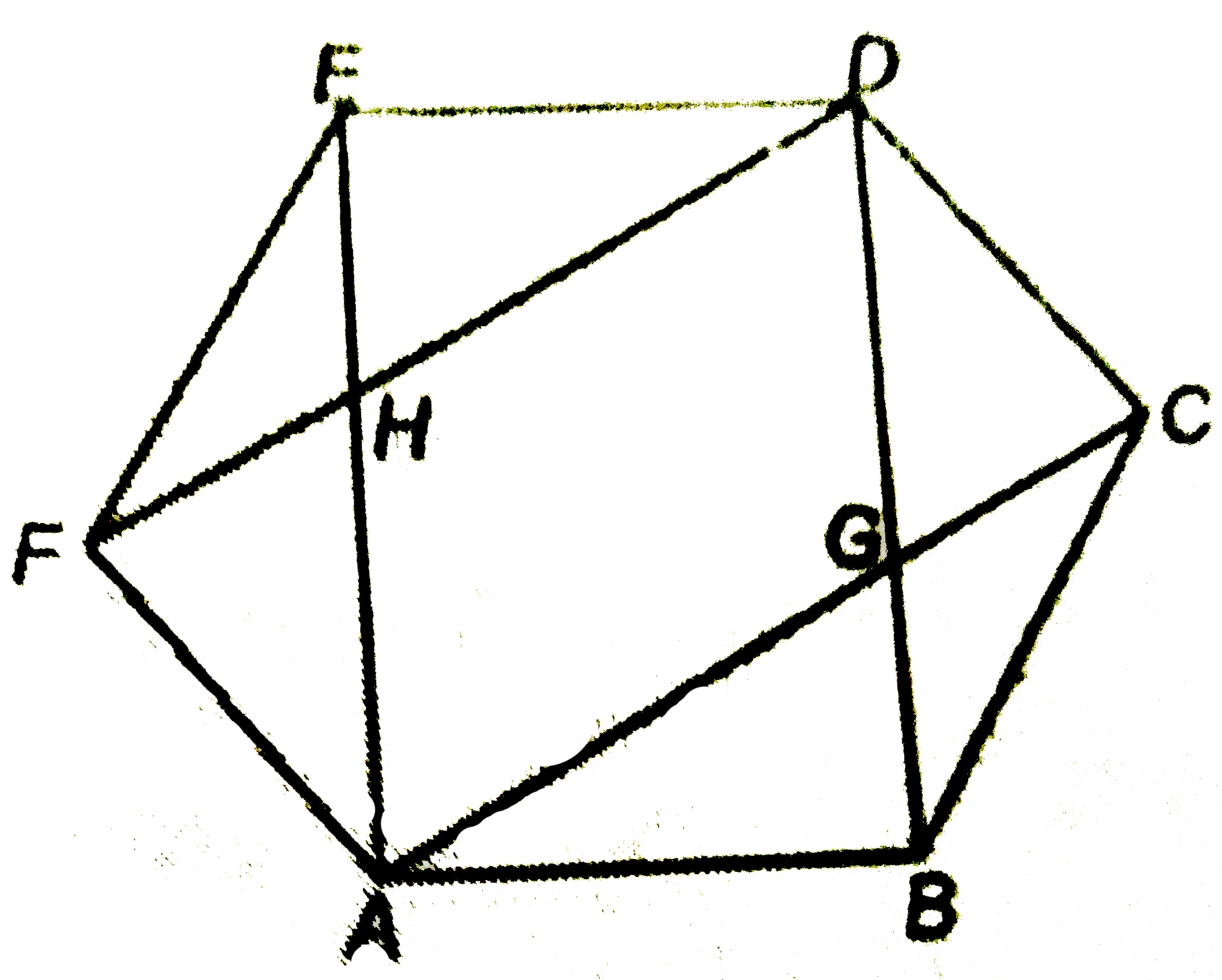
View SolutionTwo triangles `DeltaABC and Delta DEF` are given such that `AB"||"DE,BC"||"EFandAB=DE,BC=EF.`"Show that"AC"||"DFandAC=DE`
View Solution
Exercise 8a questions and complete solutions for chapter QUADRILATERALS of NAGEEN MATHS (HINGLISH) of Class 9